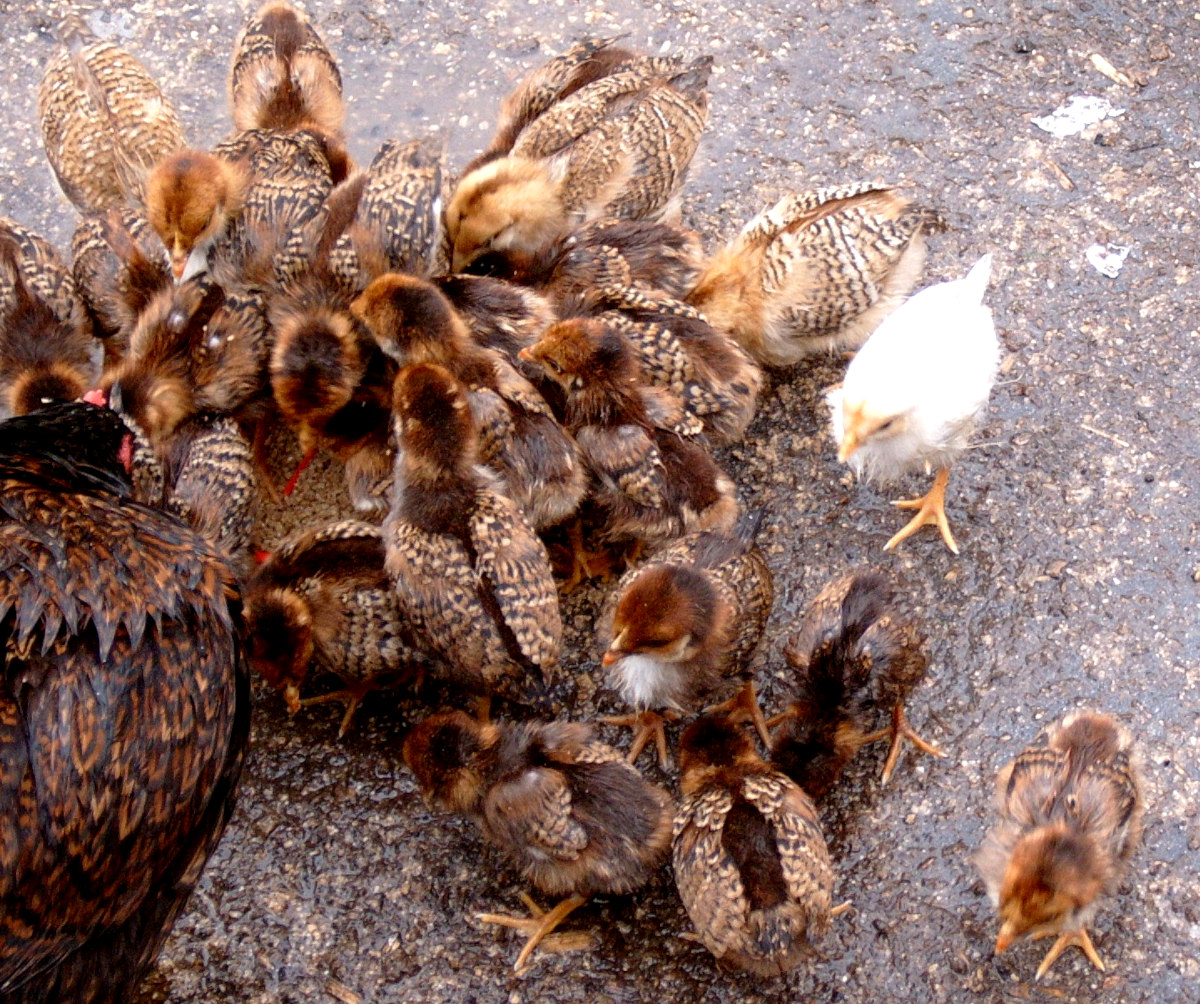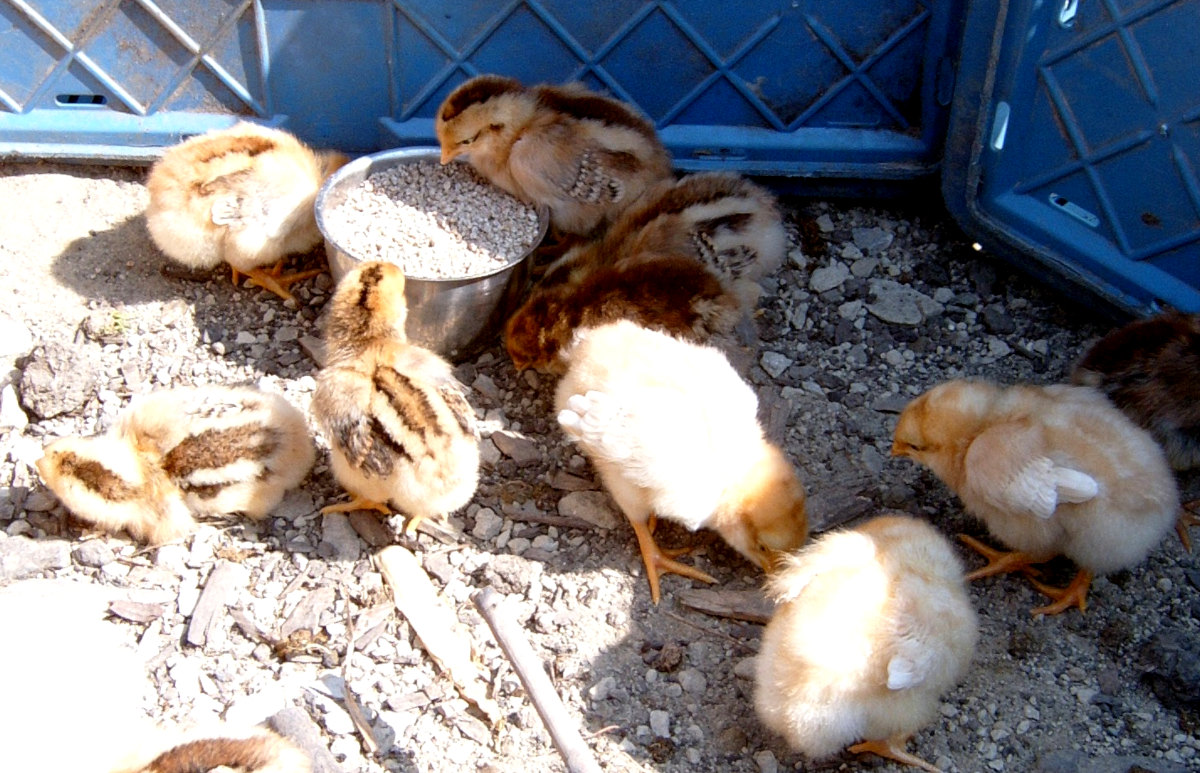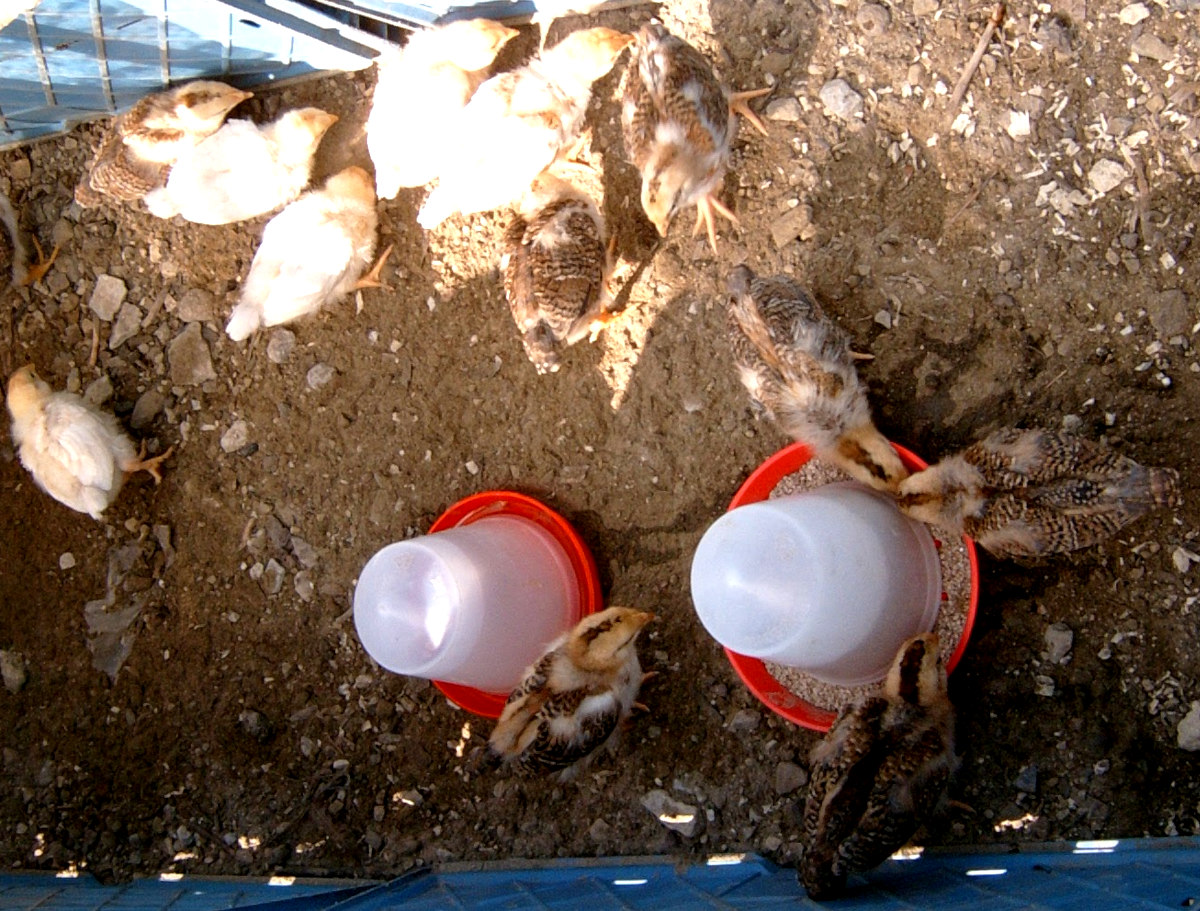The dangers of rain, cold and water for baby chicks and what you need to do to protect them.

Baby chicks are generally quite delicate and susceptible to cold temperatures, so it's not advisable to expose them to heavy rain or cold weather conditions.
Table of Contents
Chicks need a warm and dry environment to thrive, especially during their first few weeks of life. If they get wet, they can easily become chilled, which can lead to illness or even death.
Can baby chicks be out in the rain?
Yes, it can be dangerous for chicks to get wet. Baby chicks cannot regulate their own body temperature, so they need to stay warm. If they get wet, they can lose heat quickly and become chilled. This can lead to hypothermia, which can be fatal.
Below: Some of my 3 day old chicks enjoying a warm sunny day.

Generally, it is not recommended to let baby chicks be out in the rain. Their feathers are not fully developed yet, so they are not as water-resistant as adult chickens. This means that they can get cold and wet easily, which can lead to health problems.
Here are some of the risks of letting baby chicks be out in the rain:
- Hypothermia: Chicks can quickly lose heat if they get wet, especially in cold weather. This can lead to hypothermia, which can be fatal.
- Mould and respiratory infections: Wet feathers can provide a breeding ground for mould and bacteria, which can cause respiratory infections in chicks.
- Frostbite: Chicks' skin is very delicate and can be easily frostbitten if they get wet in cold weather.
If you do need to let baby chicks outside in the rain, there are a few things you can do to help protect them:
- Provide a dry, warm shelter: This could be a coop, a shed, or even a covered area under your porch. Make sure the shelter is well-ventilated so that the chicks don't get too hot.
- Keep the ground dry: If the ground is wet, the chicks' feet can get cold and wet, which can lead to health problems. You can put down straw or wood shavings to help keep the ground dry.
- Dry the chicks off: If the chicks do get wet, dry them off as soon as possible with a towel. You can also use a hair dryer on the cool setting.
It is important to note that these are just general guidelines. The specific risks of letting baby chicks be out in the rain will vary depending on the weather conditions and the breed of chicken.
If you are unsure about whether or not it is safe to let your chicks outside in the rain, it is always best to err on the side of caution and keep them inside.
What happens if chicks get wet?
If your chicks get wet, it is important to dry them off as soon as possible. You can use a soft towel or blow dryer to dry them off. You should also change the bedding in their brooder to dry bedding.
In addition, wet bedding can be a breeding ground for bacteria and other harmful microorganisms. This can lead to respiratory infections and other health problems in chicks.
Is it OK to take baby chicks outside?
t is generally not recommended to take baby chicks outside until they are at least 4 weeks old. This is because they are not fully feathered at this point and can easily get cold. Even if the weather is warm, wind and rain can also chill baby chicks.
If you do decide to take baby chicks outside, make sure to do so in a protected area.
This could be a covered patio, a small pen, or even just a cardboard box with a hole cut in the top. You should also provide them with a heat source, such as a heat lamp or a heating pad.
It is important to monitor baby chicks closely when they are outside. If they start to shiver or huddle together, it is a sign that they are cold. Bring them inside immediately and warm them up.
Below: Use the correct type of water supply for baby chicks.

With proper care, baby chicks can enjoy spending time outside. However, it is important to do so safely and only when they are old enough.
Here are some additional tips for taking baby chicks outside:
- Choose a warm, sunny day.
- Avoid taking them outside when it is windy or raining.
- Start with short visits and gradually increase the amount of time they spend outside.
- Always provide them with a heat source and a safe place to hide.
- Watch them closely for signs of cold or distress.
With a little care, you can help your baby chicks enjoy the outdoors safely.
Are baby chicks smart enough to get out of the rain?
Here are some tips to help prevent your chicks from getting wet:
- Keep the brooder in a warm, dry place or give your broody hen a covered run.
- Use a waterer that is designed for chicks. Chicks can easily drown in large water dishes.
- Change the bedding in the brooder frequently. Wet bedding can harbour bacteria and other harmful microorganisms.
- Monitor the weather forecast. If rain is in the forecast, bring the chicks indoors or provide them with a covered shelter.
- Take care the chickens can not get into ponds and large puddles after rain.
How do I protect my chicks from rain?
If you anticipate rain or inclement weather, it's best to keep the baby chicks indoors or in a sheltered area where they can stay dry. Ensure they have access to a heat source, such as a heat lamp, to maintain a comfortable temperature.
If you have an outdoor coop or run for your chicks, it's essential to provide a sheltered area where they can seek refuge from rain or adverse weather conditions.
When they are completely feathered out and they can take shelter if needed they will be fine.
Remember, providing a warm, dry, and comfortable environment is crucial for the well-being and health of baby chicks.
